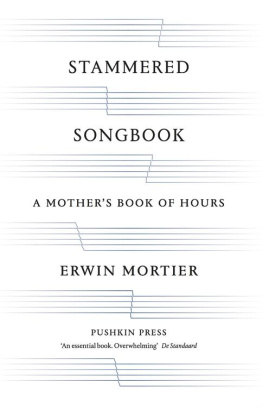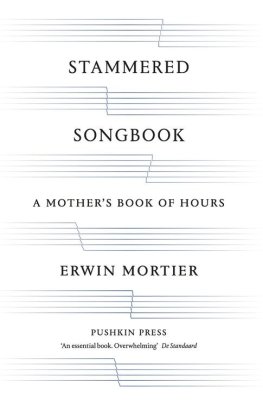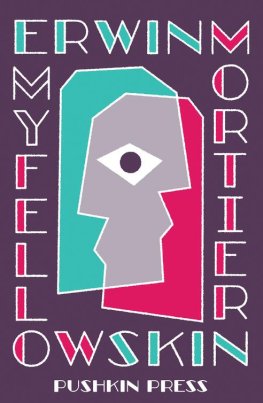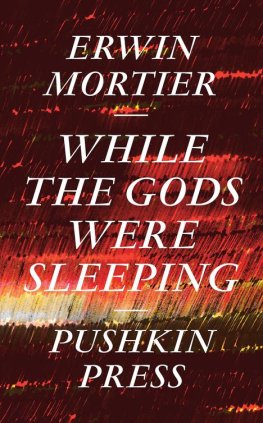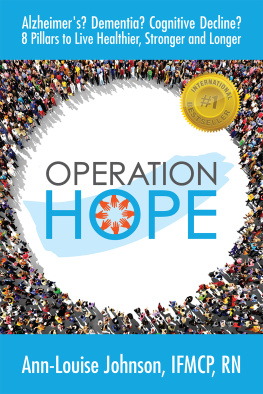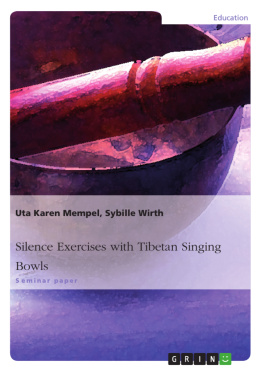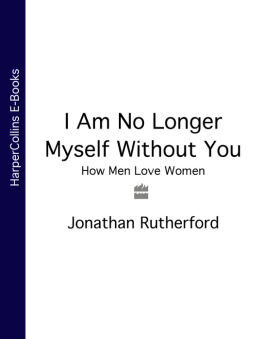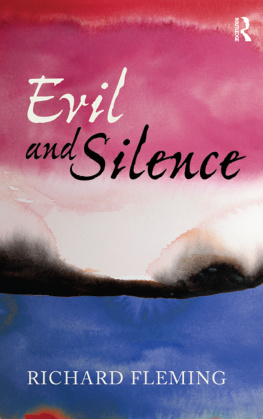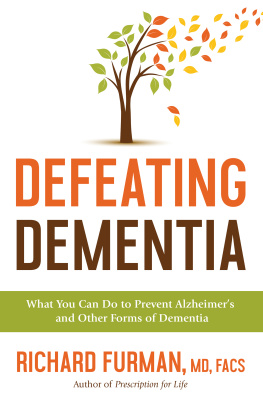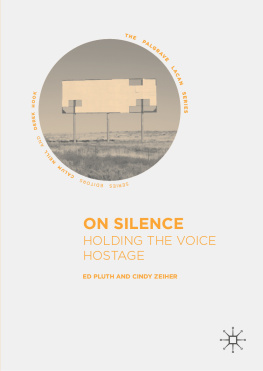Today my mother gave me a thorough dusting, thinking I was a piece of furniture. Perhaps a chest of drawers or an old cooker. She ran a bright yellow duster over my shirt buttons towards my neck, waved it about around my ears and dusted my chin. Then she motioned for me to open my mouthstuffed the duster in and forgot us.
Shes lying on the sofa, on the rug, slumped back oddly against the cushion. My father says: its not getting any better. I lean across her face and ask: do you know who I am? She smiles, a faint crease of her mouth, which has become virtually lipless.
She nods. Yes, she says, I know.
And her smile broadens, and seems to pump the lips full of blood, cover her jaws with flesh. Her eyes, which are like tin coins, impenetrably hazy, brighten between eyelids that lose their texture of flaky skin and inflammation and have eyelashes once again. The sunken cheeks become rounded, as if her smile travels through all her limbs, smoothing every wrinkle in her body that is old before its time, and making the happiness of a very young girl come tumbling out through her tissues.
She gets up, claps her hands. She wants to dance.
She waves her arms; I hear her sigh, and in her eyes is the rapture of a child that has only just learned to walk and strolls proudly down garden paths. Then her legs slip out from under her, she scrambles uprightand once more she slides over, and again.
Sometimes she falls into my fathers arms, giggling as if slightly tipsy, sometimes backwards against me. I pull her up with my arms under her armpits. Her legs thrash, her soles try to gain a grip on the floor, the back of her head tips from side to side across my ribcage like the disproportionate head of an infant on wobbly vertebrae. Her muscles, those lame strings attached to her bones, tremble, tighten, relax, her breath whines through her body, and her hands with their swollen fingers clutch the back of my hand. My father smiles faintly and looks for a chair to set her down on.
I wake up and realize that I must have cried in that dream.
Death that sits at table here is called Mum. It sits at the head of the table, cloaking both her and us in sorrow, the familiar place that it has claimed for itself for months with her shuffling tread from the front door to the dining room. My mother, the crow with a cold with that one teardrop always on her beak. Our nest, once so fleshy, is a buckled cage with a mechanical songbird rusting away inside.
This is the mouth I gazed at for heaven knows how long in the cradle. This is the mouth whose gymnastics of caressing, whisper and lullaby must have pulled me upright on the slippery surface of words. This is the mouth that is now shedding its language, stripping the words vowel by vowel into puffs of breath, gnashing of the teeth, smacking of the lips. Sometimes she mumbles out mouthfuls of porridge, and its me who listens and with a handkerchief wipes the mess of words off her chin.
It beginsbut when does something like that begin, what signs are the first? It begins with the word book, the word she just cant think of as she stands looking at my library one afternoon and asks when Ill next be ing, you know, one of those things, will I soon be ing anotherand she brings her hands side by side, fingers outstretched, and opens and shuts them. Was I going to do it again, that writing what do you call it, one of those things. She gives my father a nudge with her elbow: you say, you know.
I think: I must sit right opposite her, where my father usually sits, and then shell see theres someone there. Only when I bring my face close to hers, I think, does that stubborn fog in her eyes lift.
I sayIve said it so often recentlydo you recognize me? You know who I am, dont you?
And she nods and she laughs, and I ask: did Marc drop in? And she nods again. Yes, she saysthe first word for a month and a half. And why did he come by, Marc, on Friday?
She shrugs her shoulders. Dont know, dont know, she says, and her face contorts and she cries.
I take her hand in mine. Why are you crying? You mustnt be sad; were here, arent we? And then my father comes in. She follows him with her eyes from the cupboard to the table; she doesnt lose sight of him for a moment.
I think she knows a lot, he says.
I realize that I only write to hear sentences dancing without interruption through my head. To make rhythm, acceleration, rallentando, to make pauses sing. Just to be able to hang from dashesthe trapezes of syntaxweightlessly for a moment from the roof beam of a sentence, I let these words loose. What luxury it is to be able to swing through the rainforests of language from creeper to creeper like a performing monkey.

Or did it begin when she stopped going to the choir? Normally she never missed a Thursday. She said she was hoarse, that her voice was going. Perhaps she realized she could no longer read music, the last language she had learned. Was she already ill when she became restless if we arrived unannounced, we, my brothers, sisters and their brood? Her silent panic in front of the kitchen unit, because she couldnt manage to lay the table. The sudden crying fits, usually after she had lashed out at my father. The crying that, I now realize, had to make up for the increasing shortage of words. But at the time we laughed it off. Itll blow over, we said, isnt her menopause finished yet?
How must it feel to see the world around you lose its contours, the whole network of language, language memory, which hangs over things so unemphatically that we only notice it when it develops holes? Does everything become hazy, or does it, on the contrary, stand out more sharply as the unsayable gains strength?
He has become her memory. More and more often she comes in uncertainly, a little closer to him. Her senses are starting to stumble. If she cant get any further than stammering, she looks at him wide-eyed. If the answer doesnt come quickly, there is a hail of reproach. You really forget everything! She moans. And to me: he cant remember anything. Its awful.
What strikes me most about her, what makes me saddest, is the double silence of her being. Language has packed its bags and jumped over the railing of the capsizing ship, but there is also another silence in her or around her. I can no longer hear the music of her soul; the existential aura around her, that whole vibrating fabric of symbols with which she wove herself into the worldor, conversely, the world into her.

